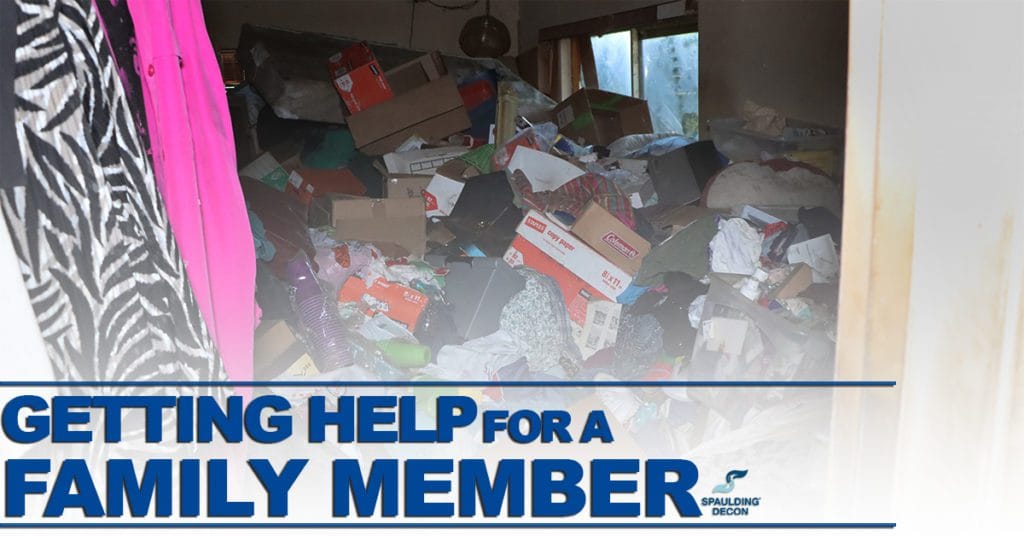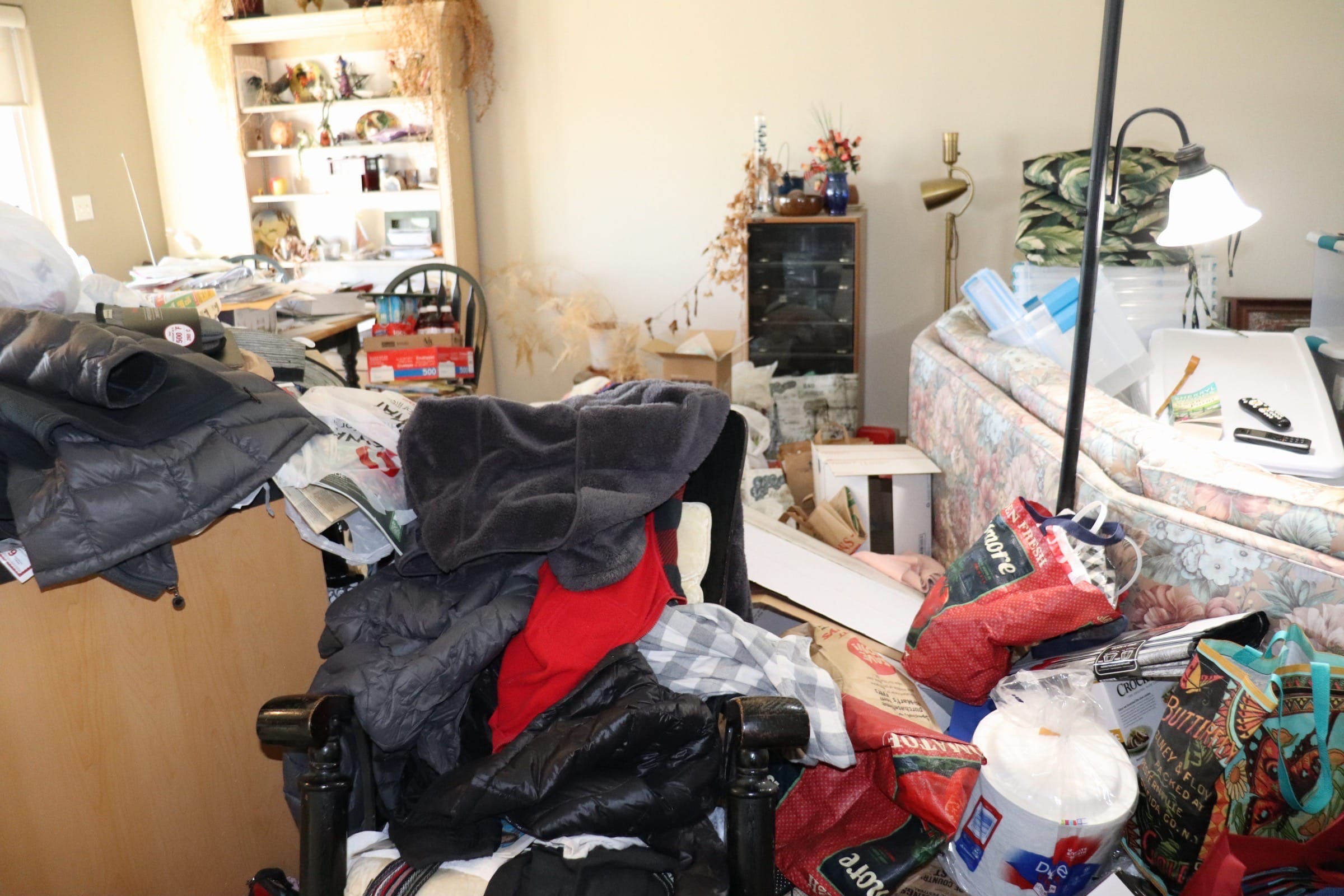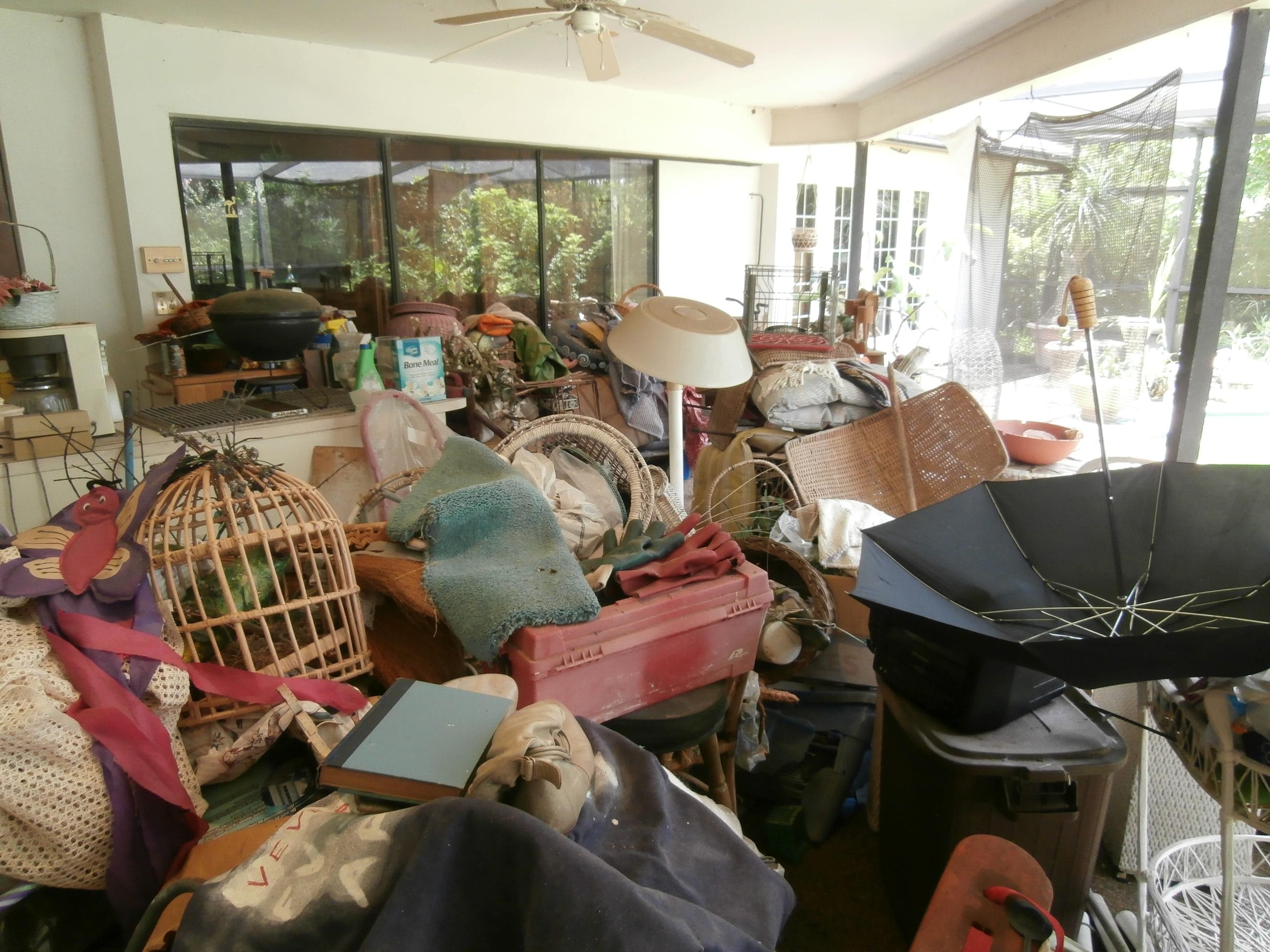Do you have a family member you believe might be a hoarder? If you suspect that someone in your family could be suffering from hoarder disorder, it is natural to want to help them, and it is what family should do. However, there are right and wrong ways to go about it. Below you will learn more about the signs of hoarding and what you should and should not do to provide your loved ones with the help they need.
Learn to Recognize the Signs of Hoarding
Are you certain that your family member is a hoarder, or do they simply have a collection of items that you do not understand, or perhaps dislike? There are differences between collectors and hoarders, and it is important to know them. According to the American Psychiatric Association, hoarding disorder is a mental health condition that causes people to save items that others see as not having any value. Below are some of the most common signs of hoarding that you will want to watch for:
- Suffering from stress when throwing out, or even thinking about, throwing out items
- Desire to keep accumulating
- Disorganization
- Clutter
- Anxiety over needing certain items in the future, even though it is highly unlikely
- The amount of usable living space in the home is reduced because of the possessions
- Not trusting others to touch their belongings
- Withdrawal from family and friends
These are some of the most common signs. Often, these are difficult to spot because someone who suffers from hoarding disorder may not invite people over to their home. This includes their family members.
Why Do Hoarders Refuse to Get Help?
As much as you may want to help your family member, it is not always easy. Often, they refuse to get help and may tell you that what they do is none of your business. There are many reasons you might encounter opposition when you are trying to help your loved one. Lets look at some of the common reasons below.
Understanding why someone may be reluctant to receiving help with their hoarding problem can shed some light on how you can better approach the situation.
They Do not See the Problem
Sometimes, even though the issue might be clear as day to you, the person with hoarding disorder just will not see it. Often, hoarders defy the images that most people have in their minds.
They are often bright and intelligent people, but there is somewhat of a disconnect when it comes to hoarding. Because they do not see the hoarding as a problem, they do not believe they need any help. They may be upset that you think there is a problem. It is going to be difficult to change their mind. Unless they feel upset by the mess, they do not see a reason to change.
Fear
This is common with most hoarders. They do not want help because they are afraid of what it will bring. They may be worried that their hoarding secret will be revealed when neighbors or other family members start to see piles of items and trash being taken out of the house. They may fear they will be fined by the city or that they may be evicted.
Most hoarders who have serious problems do not let other people into their homes. They worry about discovery, and they worry about people moving and messing with their belongings.
Do not Like the Solutions Presented
Sometimes the hoarder might realize that there is a problem or at least be willing to talk about it. However, they may not chalk it up to the same degree as their family members see fit. They may say that the hoarding is not bad and that it does not interfere with their life.
They do not see any reason to make change, or they may tell you that they do not like the changes that you have presented to them. This often leads to a standstill, and it can take some work to get past this point. As you will see below, though, there are options.
Mistrust
Most hoarders end up pulling away from their families for a myriad of reasons. It is possible they had arguments about hoarding in the past. Perhaps they do not feel comfortable in social situations, or they have had bad experiences with family in the past. This can make the hoarder nervous about trusting family members who suddenly want them to rid all their items. They sometimes look for ulterior motives, believing that family members are actively out to hurt them or even to take some of their belongings. Some hoarders have had the experience of family members coming into the home and removing boxes and bags of belongings without consent. This is a major violation, even when the family means no harm by trying to help. Fear is a natural reaction to these types of issues.
Feelings of Hopelessness
Sometimes, hoarders know they are in trouble and that they have major problems. However, they do not believe that change is available for them. They feel hopeless about the situation. Often, there are miniature mountains of items in the house, and the thought of trying to get rid of it all is overwhelming. Maybe they have already tried to solve the problem and found that they could not do it. They do not see a way out. These folks need help and love from family, as well as a plan on how to proceed.
A Lot of Value Is Placed in the Possessions
Some individuals do not want to stop hoarding because they see value in the things they have acquired. They have specific memories and emotions attached to each of their items.
The hoarder puts an exceptional value on them, and the idea of getting rid of these items, to them, would be the equivalent of stripping away those memories. It is hard for hoarders to get to the point where they are willing to change their ways.
Educate Yourself on Hoarding Disorder
One of the most important things you can as a family member who wants to help is to learn more about hoarding disorder. This does not simply mean watching a marathon of Hoarders.
You will want to learn more about the psychological reasons behind hoarding and to get a better idea of how hoarders think. Learn as much about hoarding disorder as possible before you approach your family member about making major changes. Remember, hoarding is a mental disorder which makes it more complex to deal with.
Focus on Your Family Member, Not the Junk
When you are talking with the hoarder, make sure you are focusing on your family member and not the material they have collected. Deep down, it is not about the clutter. There are underlying issues that cause hoarding behavior.
You should avoid focusing on the negatives of the clutter. Instead, it is best to focus on the positives of helping your family member and finding ways to get them to overcome their hoarding problem.
Be Empathetic
Remember, people do not hoard just because they want to collect material possessions. There are deeper reasons for developing hoarding disorder. It can stem from issues in the past, current issues, or fear about the future. Hoarders are often isolated and do not have the same social interactions as other people. They may feel isolated because they are older and do not have the same network of people they had when they were younger.
It could be because their family no longer visits them, or because the hoarder has purposely isolated themselves. Perhaps they realize they have a problem and are embarrassed by the way they live. As a family member who is trying to help, you will want to come off as empathetic as possible. You want to be there to listen to the individuals concerns and fears. Try not to be too upfront about ridding the items as this tends to provide the opposite result. Listening to and spending more time with these individuals can help them immensely.
Help Them with Removing Items
Hoarders often feel overwhelmed when they make the decision to get rid of their items. This occurs for several reasons. They are coming to terms with getting rid of items that are important to them. Also, hoarder homes are often filled to the brim, and the idea of getting rid of it all can seem like too much work. Truth be told, it is too much work for any one person.
You can offer to help sort the items and get rid of them. You can even offer to hire a company that can help with the removal. By having someone there who can manage a lot of the hard, physical work, it will make things a little easier for the reformed hoarder to bear.
Suggest Therapy and Professional Help
Hoarding is a mental health issue that does not just go away on its own. No matter how much love and attention you may give your family member, the underlying issues will remain. An individual may regress to hoarding shortly after decluttering their home. Therefore, it is encouraged to find a therapist or psychologist who can provide your loved one with long-term care to keep him or her on track.
A hoarder already has a lot on their mind, and they probably do not have the time nor mental capacity to choose a therapist. You can do a lot of the footwork for them and find several options from which they can choose.
What Should You NOT Do?
In addition to the things that you should do when you are talking with your family members about hoarding, there are also several things that you should avoid doing. It is essential that you do not break trust with the hoarder if you want to make progress.
Do not Touch Items Without Their Permission
This is a big issue that causes a lot of strife between hoarders and their family members. You would not want someone to come into your home and start removing things. Just because the hoarder has a lot of items you find useless does not mean they are yours and that you can just throw them away.
Do not Judge
It is easy to judge others, but it is never the right thing to do. Just because you are not a hoarder does not mean you are perfect. Everyone has flaws, including yourself. Do not judge hoarders based on their conditions.
Remember the importance of empathy and make that part of your plan for helping your family member. Be supportive.
Do not Enable
Consider some of the ways that you might be enabling the hoarder to continue with their lifestyle. Maybe you are giving them objects as gifts that end up in their hoard. Try to do something else for them that helps alleviate the hoarding issue.
Avoid taking the individual shopping for things they do not need. While these behaviors may seem kind, they will not help with the hoarding.
Do not Expect Immediate Change
Change does not happen overnight, especially with hoarding behavior. Even if the individual wants to make changes, they have a long way to go before they get themselves and their homes in order. Expect the progress to be slow, but make sure you are there to provide the support they need along the way. Celebrate the little victories when they come. Hoarding is a severe problem and it is one that doesnt go away on its own. You cannot ignore it if you hope for change. Your family member may not realize just how much of an issue it has become which can make it even more difficult to try to reach them. With the tips and suggestions above, you can start to make the process a bit easier for yourself and your loved one.
Resources:
More Information:
Here are more resources to help a family member struggling with hoarding in your life.
- 7 Warning Signs Someone You Love Has a Hoarding Problem
- Is Hoarding a Disease? What Do the Experts Think?
- Animal Hoarding: Laws, Facts and Psychology behind It
- Is Hoarding a Mental Illness?
- Getting Help for a Family Member Who Is a Hoarder
- Hoarding Is on the Rise





